The incoming White House political operation is gearing up to steer the 2026 midterm elections for the Republican Party, with aggressive plans to deploy President-elect Donald Trump in the familiar role of GOP evangelist and wield an unusually heavy hand in recruiting candidates and vetting their campaign teams.
Trump’s intention to continue with robust politicking, including signature big-top rallies, was confirmed with his appointment of 2024 campaign aide Justin Caporale as “executive producer for major events and public appearances.” The president-elect credits Caporale with helping execute the Republican National Convention in Milwaukee and his headline-grabbing appearance at a McDonald’s restaurant in Pennsylvania, among other highlights of his comeback victory.
Trump’s goal with this and other White House political shop hires, GOP sources tell The Dispatch, is to exert total control over the party ahead of the midterm elections (typically unkind to presidents in their second terms)—and to look ahead to 2028 and the Republican Party’s future.
This vice grip includes exercising veto power over preferred congressional and gubernatorial candidates and the staff and consultants they enlist for their campaigns. Although it’s not uncommon for sitting presidents to exert political influence over their parties, these particular decisions are typically made by the congressional campaign committees and their allied super PACs. For the GOP, that’s the National Republican Congressional Committee and Congressional Leadership Fund for House races, and the National Republican Senatorial Committee and Senate Leadership Fund for Senate seats (and for governors, the Republican Governors Association).
This could spark intraparty friction over strategy and tactics between the White House political operation and party affiliated and aligned groups. But Trump is uniquely popular with Republican voters, and his endorsement is especially coveted in GOP primaries. So he may dominate party activities more than some of his recent predecessors—including himself in his first term. To wit: Trump 2024 campaign aide Alex Latcham is the Senate Leadership Fund’s new executive director, Axios reports. This post might otherwise have been filled by an individual close to the No. 1 ranking Senate Republican, in this case, South Dakota’s John Thune.
“When you’re running and doing all the right things to get a Trump endorsement, the question should be: Who are you hiring? What’s your pathway to victory?” said a knowledgeable Republican operative, who like others interviewed for this story, requested anonymity to discuss the president-elect’s second-term plans. “I’ve seen a little of this happening so far, which is welcoming.”
The Trump White House transition team acknowledged a request for comment from The Dispatch but had not provided one at press time.
Trump has a full agenda on his plate and narrow Republican majorities in the House and Senate to navigate, and GOP operatives expect him and his White House political operation to focus on advancing that legislation. Priorities include beefing up border security, upping domestic energy production, and reducing taxes. Trump claims he also wants to push through possibly difficult spending cuts, something he will have to do while approving fresh Republican appropriations bills and an increase in the debt ceiling.
Trump tends to be more directly involved in political decisionmaking than most presidents. But chief of staff Susie Wiles; deputy White House chief of staff for legislative, political, and public affairs James Blair; and White House political director Matthew Brasseaux—all key members of his 2024 campaign—will have a vital function for Trump, a longtime Republican strategist explained.
“The Political Operation can be, and probably should be, a political counterbalance to the policy absolutists in Congress and the administration,” this GOP insider explained. “If they’re willing to get 70 percent to 75 percent of what they want through Congress, I think they can have a number of legislative wins, particularly on immigration, energy independence and the economy.”
The challenge before Trump and the White House political operation is considerable. House Republicans are defending a fluctuating majority of less than a handful of seats, and Senate Republicans are defending a four-seat majority. But outside help is in the offing.
Chris LaCivita, the veteran Republican strategist from Virginia who along with Wiles managed the president-elect’s 2024 campaign, is considered a crucial player in the broader effort to support and enforce Trump’s vision. Also expected to play a role of some sort is Elon Musk, the billionaire chief executive officer of Tesla and SpaceX who invested $250 million of his own money, via his America super PAC, to boost Trump’s 2024 bid and now leads the president-elect’s effort to streamline government.
“It will absolutely be a big team and Elon needs to fit in here somewhere, too,” a Republican insider who works for a GOP-aligned political group said. Meanwhile, an entire ecosystem of pro-Trump organizations and prominent media figures that emerged during outgoing President Joe Biden’s tenure is preparing to impose Trump’s legislative and political agenda on the GOP, each in their own way.
For the White House political shop, the immediate task is passing Trump’s legislative agenda and defending Republicans’ slim congressional majorities. Yet there is a 2028 component to the incoming administration’s political portfolio: the elevation of 40-year-old Vice President-elect J.D. Vance.
Vance, who on Friday resigned his Ohio Senate seat only two years after occupying it, is still new to politics—and the GOP. So Republican insiders expect the White House political shop to spend the next couple of years solidifying Vance’s position as the overwhelming frontrunner, if not the only viable candidate, for the GOP’s 2028 nomination. Bolstering such an effort are some key outside figures and operatives who are Vance partisans and, importantly, also have Trump’s ear. They include Donald Trump Jr., who was instrumental in Vance being invited onto the 2024 ticket; populist media personality Tucker Carlson; and Tony Fabrizio, the pollster who advised Trump in 2024 and Vance in 2022.
“The most fascinating thing to watch is how Vance plays all this and what they allow him to do,” said a Republican consultant based in a Midwestern battleground state. “Have they really decided he is the heir or will they allow other challengers to exist? Even if they have decided he is the heir, will they allow him to flourish or will Trump keep the oxygen for himself?”
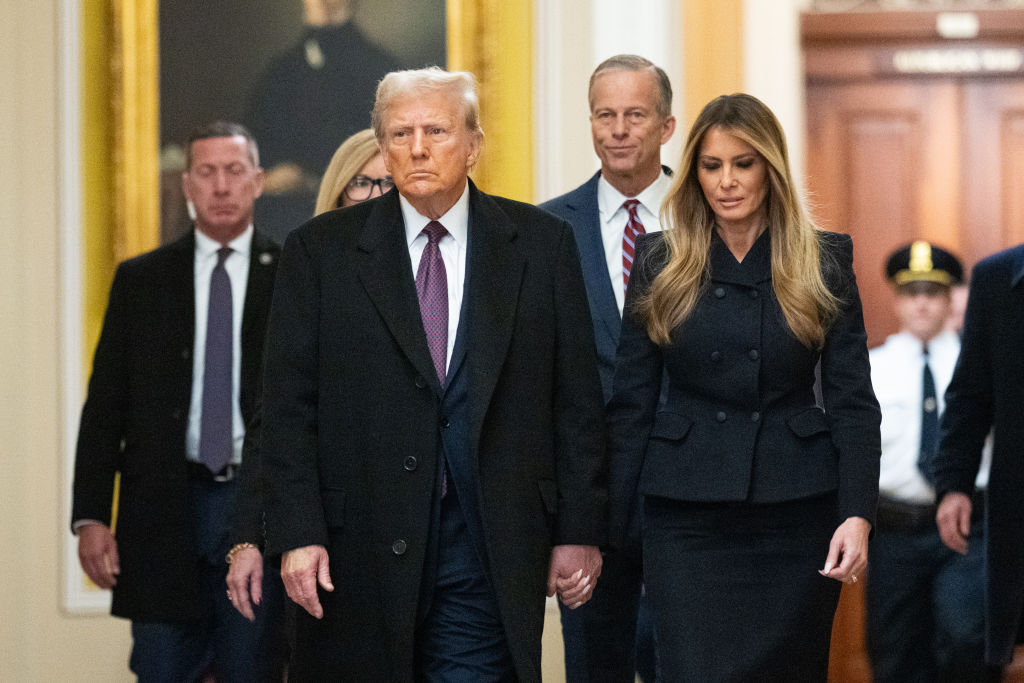

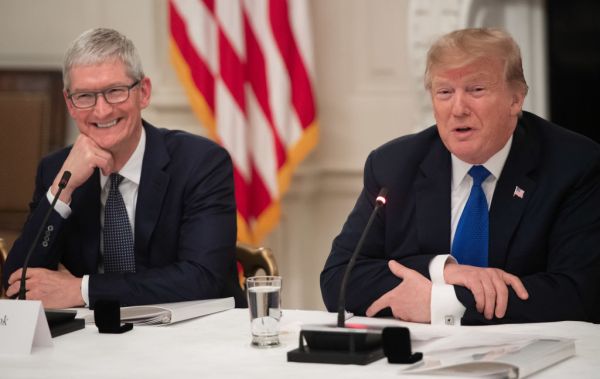
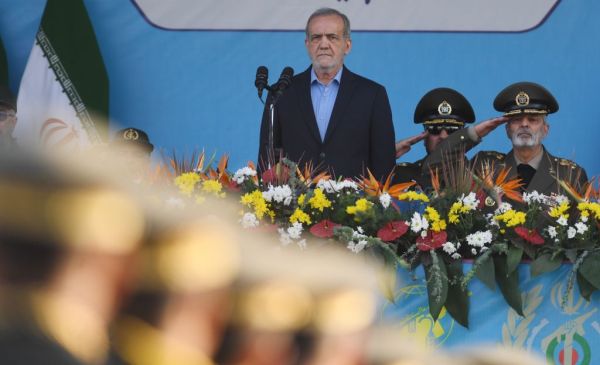
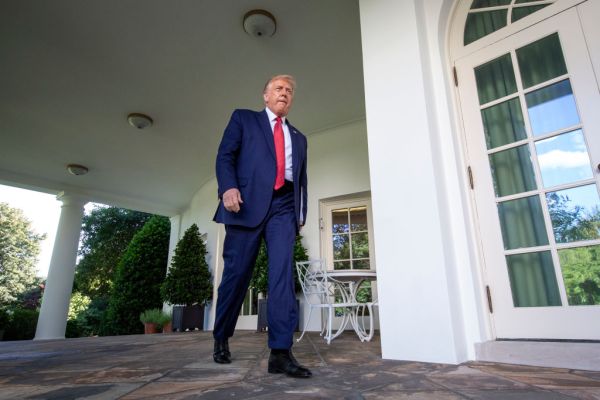

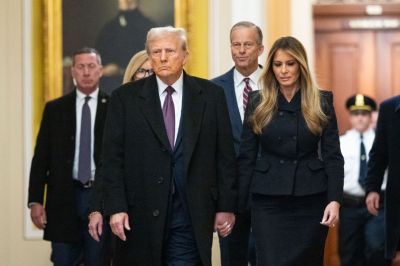
Please note that we at The Dispatch hold ourselves, our work, and our commenters to a higher standard than other places on the internet. We welcome comments that foster genuine debate or discussion—including comments critical of us or our work—but responses that include ad hominem attacks on fellow Dispatch members or are intended to stoke fear and anger may be moderated.
With your membership, you only have the ability to comment on The Morning Dispatch articles. Consider upgrading to join the conversation everywhere.